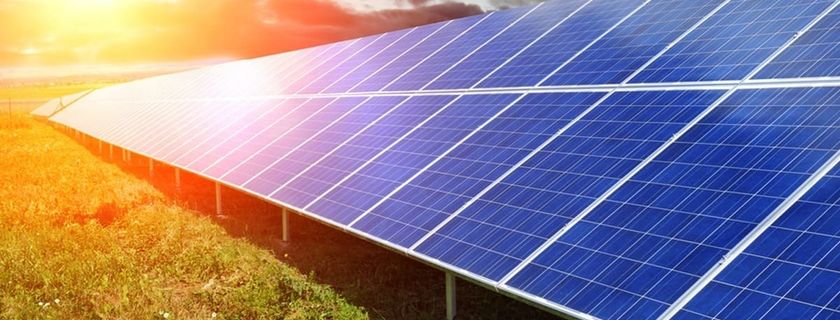
CIRCUSOL: Solar power business models towards a circular economy in Europe (PRESS RELEASE)
CIRCUSOL: Solar power business models towards a circular economy in…

The European Commission presented the EU Circular Economy Action Plan which is driven by the ambition to make sustainable products that last and to modernise and transform the European economy while protecting the environment. The transition to the circular economy will be systemic, deep and transformative. In order to achieve climate neutrality, the synergies between circularity and reduction of greenhouse gas emissions will step up.
This Circular Economy Action Plan provides a future-oriented agenda for achieving a cleaner and more competitive Europe in co-creation with economic actors, consumers, citizens and civil society organisations. It aims at accelerating the transformational change required by the European Green Deal while building on circular economy actions implemented since 2015.
The plan presents a set of interrelated initiatives to establish a strong and coherent product policy framework that will make sustainable products, services and business models the norm and transform consumption patterns so that no waste is produced in the first place. This product policy framework will be progressively rolled out, while key product value chains will be addressed as a matter of priority. Further measures will be put in place to reduce waste and ensure that the EU has a well-functioning internal market for high quality secondary raw materials. The capacity of the EU to take responsibility for its waste will be also strengthened.
Circularity is an essential part of a wider transformation of the industry towards climate-neutrality and long-term competitiveness. It can deliver substantial material savings throughout value chains and production processes, generate extra value and unlock economic opportunities.
Sustainable batteries and vehicles underpin the mobility of the future. To progress swiftly on enhancing the sustainability of the emerging battery value chain for electro-mobility and boost the circular potential of all batteries, the Commission will propose a new regulatory framework for batteries. This legislative proposal will build on the evaluation of the Batteries Directive and the work of the Batteries Alliance with the consideration of the following elements:
The Commission will also propose to revise the rules on end-of-life vehicles with a view to promoting more circular business models by linking design issues to end-of-life treatment, considering rules on mandatory recycled content for certain materials of components, and improving recycling efficiency. The Commission will consider the most effective measures to ensure the collection and the environmentally sound treatment of waste oils.
From a broader perspective, the forthcoming Comprehensive European Strategy on Sustainable and Smart Mobility will look into enhancing synergies with the circular economy transition, in particular by applying product-as-service solutions to reduce virgin material consumption, use sustainable alternative transport fuels, optimise infrastructure and vehicle use, increase occupancy rates and load factors, and eliminate waste and pollution.
Despite efforts at EU and national level, the amount of waste generated is not going down.
Annual waste generation from all economic activities in the EU amounts to 2.5 billion tonnes, or 5 tonnes per capita a year, and each citizen produces on average nearly half a tonne of municipal waste.
The decoupling of waste generation from economic growth will require considerable effort across the whole value chain and in every home. Rolling out the sustainable product policy and translating it into specific legislation will be key to making progress on waste prevention. In addition, we need to build on, further strengthen and better implement EU waste laws.
EU waste laws have driven major improvements in waste management since the 1970s, supported by EU funds. However, they need to be modernised on an ongoing basis to make them fit for the circular economy and the digital age. Revision of EU legislation on batteries, packaging, end-of-life vehicles and hazardous substances in electronic equipment will be proposed with a view to preventing waste, increasing recycled content, promoting safer and cleaner waste streams, and ensuring high-quality recycling.
Waste reduction targets for specific streams as part of a broader set of measures on waste prevention in the context of a review of Directive 2008/98/EC will be put forward. The Commission will enhance the implementation of the recently adopted requirements for extended producer responsibility schemes, provide incentives and encourage sharing of information and good practices in waste recycling. All this shall serve the objective to significantly reduce total waste generation and halve the amount of residual (non-recycled) municipal waste by 2030.
High-quality recycling relies on effective separate collection of waste. To help citizens, businesses and public authorities better separate waste, the Commission will propose to harmonise separate waste collection systems. In particular, this proposal will address the most effective combinations of separate collection models, the density and accessibility of separate collection points, including in public spaces, taking account of regional and local conditions ranging from urban to outermost regions. Other aspects that facilitate consumer involvement will also be considered, such as common bin colours, harmonised symbols for key waste types, product labels, information campaigns and economic instruments. It would also seek standardisation and the use of quality management systems to assure the quality of the collected waste destined for use in products, and in particular as food contact material.
To sum it up, The European Circular Economy Action Plan will ensure that the regulatory framework is streamlined and made fit for a sustainable future, that the new opportunities from the transition are maximised while minimising burdens on people and businesses.

CIRCUSOL: Solar power business models towards a circular economy in…